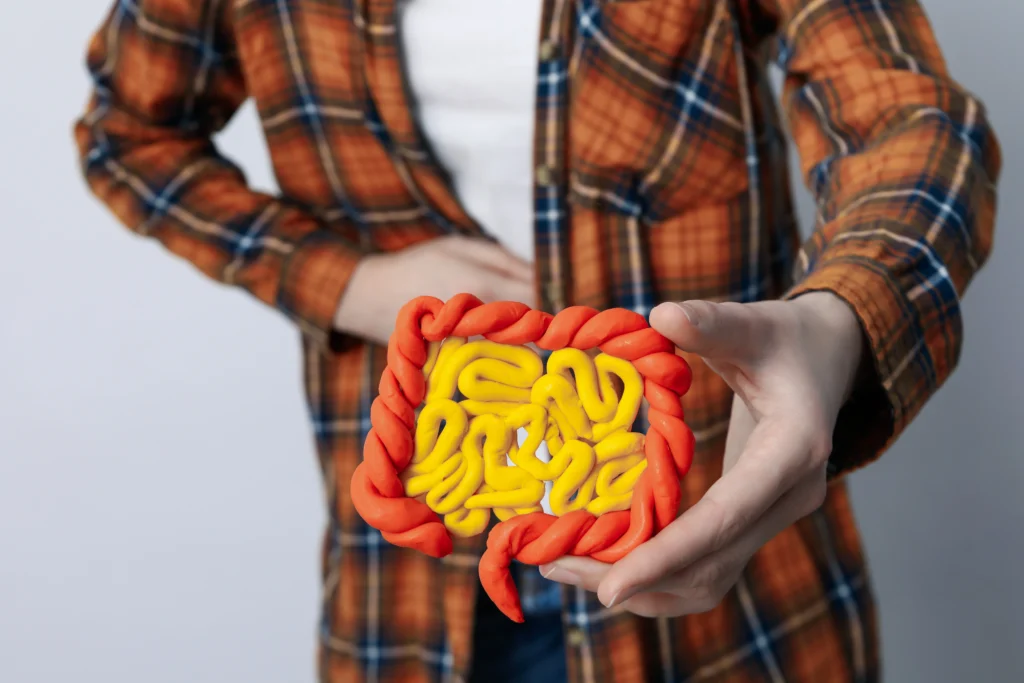Crohn’s disease is a long-lasting illness that makes parts of the digestive tract swell. Because of this swelling, you may experience abdominal pain, diarrhea, feeling very tired, and weight loss. Over time, the swelling can spread deeper into the wall of the bowel. As a result, it can cause serious trouble like blockages, infections called abscesses, or small tunnels named fistulas.
Crohn’s Disease affects around 780,000 people in the United States. In fact, the number of people with this disease is growing in many countries. It can happen at any age. However, it is most often found in young adults. Often, people are diagnosed between the ages of 15 and 35.

When it comes to symptoms of Crohn’s disease, they can be mild or very serious. However, they usually start slowly and get worse over time. Sometimes, they can also appear suddenly without any warning. In addition, many people with Crohn’s Disease have times when the symptoms go away. This break from symptoms is called remission.
The exact cause of Crohn’s disease is still not known. However, several things may play a role in its development:
Crohn’s Disease can affect any part of the small or large intestine. In some cases, it shows up in several spots, with healthy areas in between. In others, the swelling may happen in one long section. Most often, it affects the last part of the small intestine. However, for some people, Crohn’s disease only affects the colon, which is also known as the large intestine.
Several factors may increase your risk of developing Crohn’s disease:
Common trigger foods include high-fiber vegetables, dairy products, spicy foods, and fatty or fried items. Additionally, a low-residue diet may help reduce symptoms during flare-ups.
Blood tests, stool tests, colonoscopy, and imaging studies such as CT scans or MRIs can help diagnose Crohn’s disease. This helps evaluate inflammation and rule out other conditions.
Crohn’s Disease has no cure. Once your doctor diagnoses it, you begin working closely with them to manage the condition. You can control symptoms effectively with medication and lifestyle changes. Additionally, surgery can sometimes help reduce flare-ups. With the right treatment, you can improve your long-term health.
While stress doesn’t cause Crohn’s Disease, it can exacerbate symptoms or trigger flare-ups. Additionally, stress management techniques like meditation and exercise can help alleviate these effects.
Treatment options include anti-inflammatory drugs, immune system suppressors, biologics, antibiotics, and surgery. Additionally, your doctor may also recommend dietary adjustments and nutritional supplements.
Common signs of Crohn’s Disease include abdominal pain, chronic diarrhea, loss of appetite and weight loss, bloody stool, mouth ulcers, fever, and abscesses of infections around your anal canal.
Moreover, Crohn’s Disease can also cause symptoms in body parts outside of your digestive tract. For example, joint pain, rashes, eye inflammation, kidney stones, osteoporosis, skin tags (usually around the anus), and bile duct inflammation.
Crohn’s Disease can cause complications that may require more treatment or surgery. For example abscesses, anal fissures, fistulas, bowel obstructions, malnutrition, and anemia.